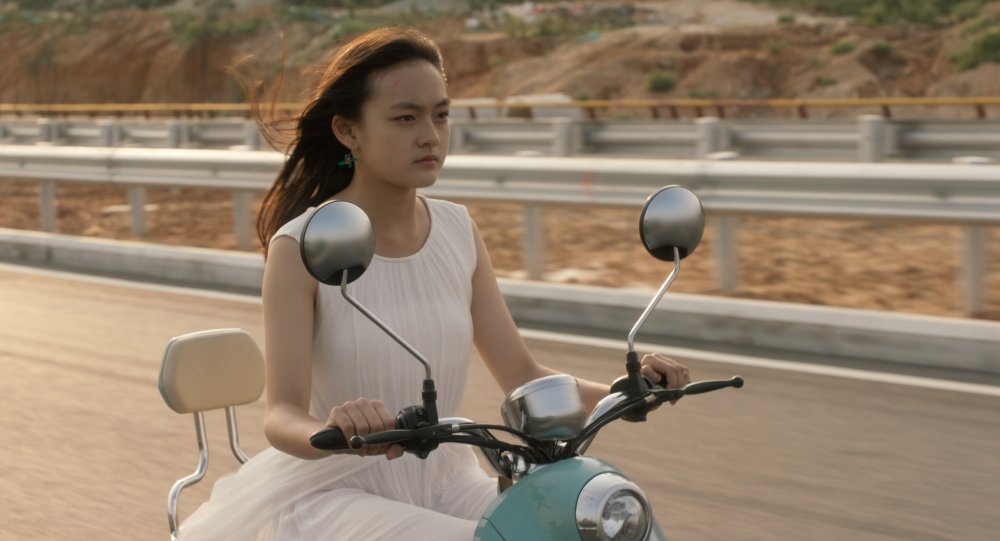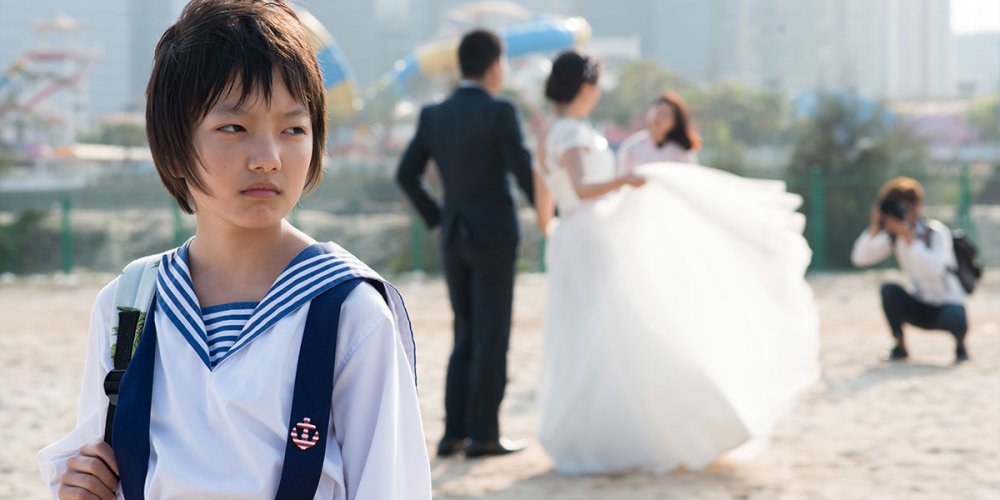A recurring motif in Angels Wear White, an urgent and rigorous social drama from Chinese writer-director Vivian Qu (Trap Street), is a full-size copy of Seward Johnson’s 26-foot-tall statue Forever Marilyn, which stands astride the promenade of a provincial seaside resort, recreating the iconic dress-billowing pose from The Seven Year Itch. Rarely shot from above or at an angle that reveals the familiar, beaming Monroe smile, the sculpture is seen from the ground up, reducing it to a pair of legs inviting the eye upwards. In short: it’s a colossal upskirt, and an appropriate monument for a broadside against a society’s ingrained, systemic sexism.
China/France 2017
107 mins
Director Vivian Qu
Cast
Wen Zhou Meijun
Lily Jing Peng
Hao Ke Shi
Mia Qi Wen
Yuexin Wang
Le Geng
Mengnan Li
Weiwei Liu
Original Mandarin title Jia Nian Hua
UK premiere Thursday 12, Friday 13 and Saturday 14 October 2017 at the London Film Festival
Mia (Wen Qi) is an undocumented migrant worker who cleans bedrooms in a tacky luxury motel. Sometimes she covers the reception desk during the small hours while her colleague Lily (Peng Jing) pends time with a would-be suitor. It’s on one such night that she checks in an older gentleman and two schoolgirls, and idly spies on them via CCTV as the man drunkenly forces his way into his young companions’ room with crude and clear intent. Mia records the incident on her phone, an act of incalculable value once the parents of the girls take the offending party, a high-ranking local official, to court, causing a scandal throughout the town.
In other hands, this would be a compelling enough crime procedural, but Qu moulds Angels Wear White into a daylight noir of complex moral dilemmas, compromised public services and a social system that stacks the odds against our protagonists at every turn. A tripartite narrative perspective follows Mia, Wen (Zhou Meijun), one of the two 12-year-old victims, and Hao (Shi Kei), the lawyer assigned to the case – three female subjects of a patriarchal society that is, either outwardly or implicitly, indifferent towards their rights and wishes.

Angels Wear White (Vivian Qu, 2017)
Qu weaves a meticulous, multifaceted critique of this crooked town, charting a social hierarchy in three dimensions – across class, age and gender lines – and exploring the values and currencies that stymie progress. What is ethically straightforward proves to be endlessly complicated: Mia fears coming forward with her damning evidence as it puts her in danger of losing her job, while the victims’ parents face repercussions both public and private from pursuing justice. And who’s to gain from winning the case, anyway? It might be more beneficial for Mia to play the game, and use blackmail to raise funds to buy an ID card on the black market, and for the parents to accept a hefty out-of-court settlement, securing their children’s financial future without tarnishing their reputations in the eyes of the wider community.
Qu’s vision, both as writer and director, is sympathetic to her characters’ struggles, yet her social commentary is savage, subtle and precision-tooled. A lingering shot of the police motto ‘Serve the people’, writ large on the station wall, may be a little on the nose, but an accumulation of imagery and references to pre-marital exams, hymen reconstruction clinics and virginal wedding photography – bride on horseback, led by the groom; bride carried in groom’s arms – paints a powerful portrait. In this world, women are as idealised and objectified as that silent and obliging Marilyn statue. This impressive statement, restrained but ringing with purpose, is both articulate and ardent.
-
BFI London Film Festival 2017 – all our coverage

Follow all our coverage of the 61st London Film Festival, including reviews of the top films, interviews with their makers and blog posts from our...
-
Toronto Film Festival 2017 – all our coverage

First-look reviews of the top new films unveiling at north America’s autumn festival behemoth.
-
The Digital Edition and Archive quick link
Log in here to your digital edition and archive subscription, take a look at the packages on offer and buy a subscription.






